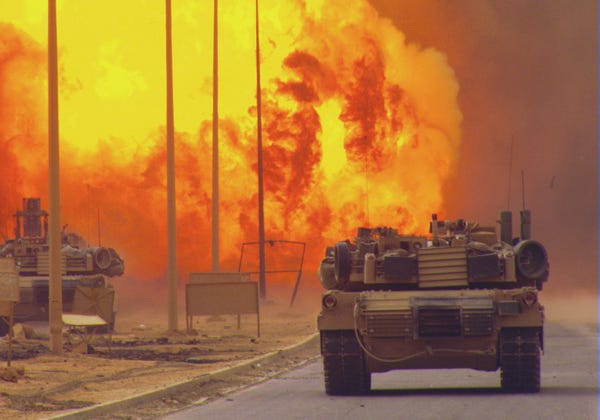Heroes of the Zeroes: No End in Sight
Heroes of the Zeroes is a daily, alphabetical look back at the 365 best films of 2000-2009.
"No End in Sight" Not Rated 2007
In the Zeroes, healthy skepticism exploded into profitable snark — diminishing issues and emphasizing entertainment of weaponized opinion, no matter how ill-informed. When volume generates validity, why give a damn about logic?
Charles Ferguson’s “No End in Sight” rebuffed that idea — criticism that counted because of levelheadedly presented facts behind reasons to war with, and a “plan” for reconstruction in, Iraq.
A mix of talking heads and even-keeled narration by Campbell Scott, “Sight” dizzyingly compiles the chaos that defined post-war Iraq — $12 billion in looting losses, 7,000 years of culture destroyed, 500,000 disbanded military men courted by insurgencies, one of every two citizens unemployed. Terroristic opportunists filled this void with hatred — the cadence of which became chillingly familiar.
It also attacks the bureaucratic whims that bred this — simple approaches to necessarily complex foreign policy that created ethical, financial and political quagmires.
The Office for Reconstruction and Humanitarian Assistance was convened with no computers or structure. One in eight Humvees had adequate armor. Municipal-style cronyism riddled a scenario upon which nations’ fates rested. When yes men admit culpability or failure, Ferguson lets their darting eyes betray their rehearsed rhetoric.
Amid diminished rancor, some argue Iraq War discussions — documented or dramatized — should be left in the past. “Sight’s” moderate temperament hides obvious roars: Remembering the outrage over this disappointment and disaster is all that keeps it from again occurring unopposed.
Above other similar documentaries, “Sight” most persuasively posits that the inception of, and response to, the Iraq War perverted America’s ideals and intellect.



